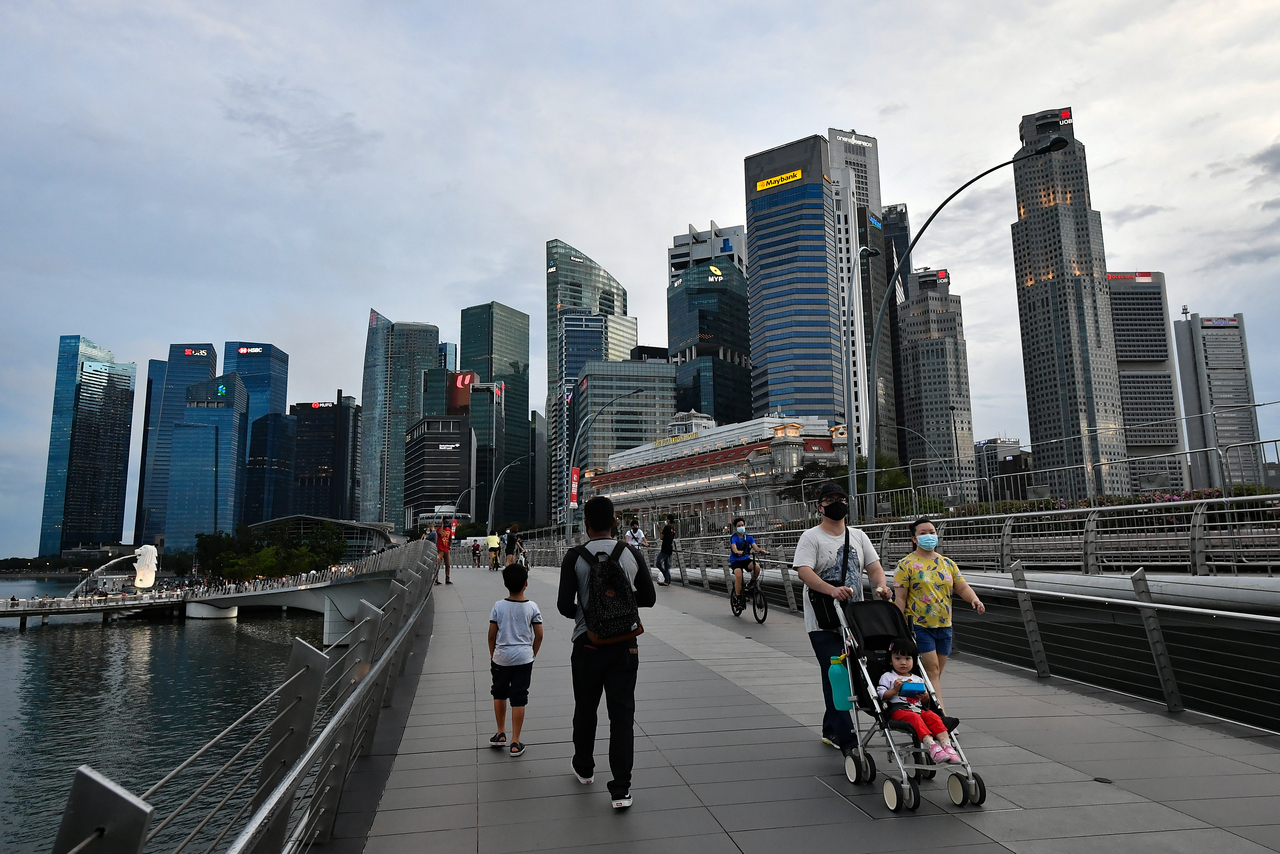Better-than-expected Q2 GDP lifts hopes of faster S'pore growth though Delta Covid-19 variant threat lingers
Sign up now: Get ST's newsletters delivered to your inbox

The strong second-quarter growth was largely due to the low base in the same period last year.
PHOTO: ST FILE
Follow topic:
SINGAPORE - A smaller than expected quarter-on-quarter contraction in the April-June period, plans for a gradual reopening of borders and easing of Covid-19 curbs have raised hopes of a faster economic recovery for Singapore.
But analysts warned that the path to the higher official growth forecast of 6 per cent to 7 per cent may still face challenges. For one thing, growth in the second half of the year will be compared with the relatively high base set in the same period of 2020, they said.
The economy expanded by 14.7 per cent on a year-on-year basis in the second quarter of this year, faster than the initial estimate of 14.3 per cent growth, the Ministry of Trade and Industry (MTI) said on Wednesday (Aug 11).
The strong second-quarter growth was largely due to the low base in the same period last year. In absolute terms, GDP remained 0.6 per cent below its pre-pandemic level in the second quarter of 2019, MTI said.
On a quarter-on-quarter seasonally adjusted basis, the Singapore economy contracted by 1.8 per cent in the second quarter, a reversal from the 3.3 per cent expansion in the first quarter but less than the 2 per cent contraction earlier estimated.
Beyond the base effects, which mostly boosted the services sector, the bulk of growth came from manufacturing, which expanded by 17.7 per cent year on year, extending the 11.4 per cent growth recorded in the previous quarter.
Construction sector output more than doubled as most local building activities were suspended during the circuit-breaker period a year ago. But in absolute terms, the sector's value-added was 29 per cent below its pre-pandemic level for the same period in 2019. The low base comparison also accounted for the year-on-year rebound in retail trade, food and beverage services, real estate, and transportation and storage.
Mr Lam Yi Young, chief executive officer of the Singapore Business Federation, said the resumption of business travel and easing of border controls will help. But even as Singapore transits towards being a Covid-19 resilient nation, the situation in other countries grappling with the Delta variant will continue to pose risks to businesses, he said.
"We need to continue to be vigilant and agile to manage the impact to business operations in other countries," said Mr Lam.
UOB economist Barnabas Gan said: "Singapore's economy has been supported by the favourable export environment since the start of this year."
He cautioned however that Covid-19-related risks may evolve in the months ahead for Singapore, as well as for its key trading partners.
"Anecdotal evidence has shown how quickly issues may turn south, should Covid-19 risks magnify," he said.
Meanwhile, Mr Edward Robinson, the Monetary Authority of Singapore's (MAS) deputy managing director and chief economist, said the central bank's current policy stance of zero appreciation of the trade-weighted Singapore dollar remains appropriate.
However, MAS will continue to watch global developments, he added. The central bank's next scheduled policy review is in October.
"A faster pace of reopening and relaxation of restriction measures and potential resumption of some international travel later this year would pave the way for a more stable recovery trajectory," said Ms Selena Ling, head of treasury research and strategy at OCBC Bank.
She said that while MAS may stay at status quo at the October monetary policy review, it could lay the groundwork for a recalibration of policy settings in 2022, given that the economy should have recovered to pre-pandemic levels by then.

